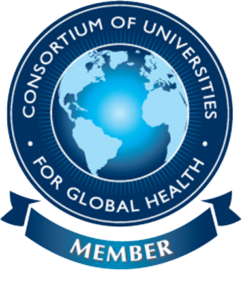Kirstin Kielhold received the Cancer Epidemiology Education in Special Populations (CEESP) internship. Hailing from Lodi, California, Kirstin relocated to San Diego for the UCSD/SDSU Joint Doctoral Program (JDP) in Public Health in the Global Health track.
Kirstin first became interested in public health during a seminar class while pursuing her undergraduate degree where a speaker presented on harm reduction. Making connections with the speaker ultimately led to an internship at the San Francisco AIDS Foundation, and that sparked the start of her public health career. With this new experience in HIV research, Kirstin centered on cervical cancer research in Zambia. Kirstin has had a “desire to do a global health project that was community based” which contributed to her interest in cancer epidemiology education. This led to her current project “Time from Histopathologic Confirmation to Evaluation for Treatment: A Retrospective Analysis Among Cervical Cancer Patients in Lusaka, Zambia (2014-2022).”
This project focuses on how quickly patients in Zambia who are diagnosed with cervical cancer begin treatment. “Developing countries such as Zambia still see many rates of mortality around 44.8 per 100,000 women, compared to only 2.3 per 100,000 women in the United States,” Kirstin explained, which shows the urgency of global health and of lowering mortality rates among people with cervical cancer. There are many reasons behind the high mortality rates from infrastructure to low quality medical records and “this project not only seeks to understand where the holes in the [health]care continuum lie to recommend where resources can be better distributed in the future, but it also will provide the hospital with a much more comprehensive and up to date database of cervical cancer patients, which can be utilized for continuing research.”
“This project taught me the realities of working in a developing country, how to think on my feet, and has impacted my thoughts on global health projects,” Kirstin reflected. She hopes to be able to apply what she learned to substance use and harm reduction work in the future.





